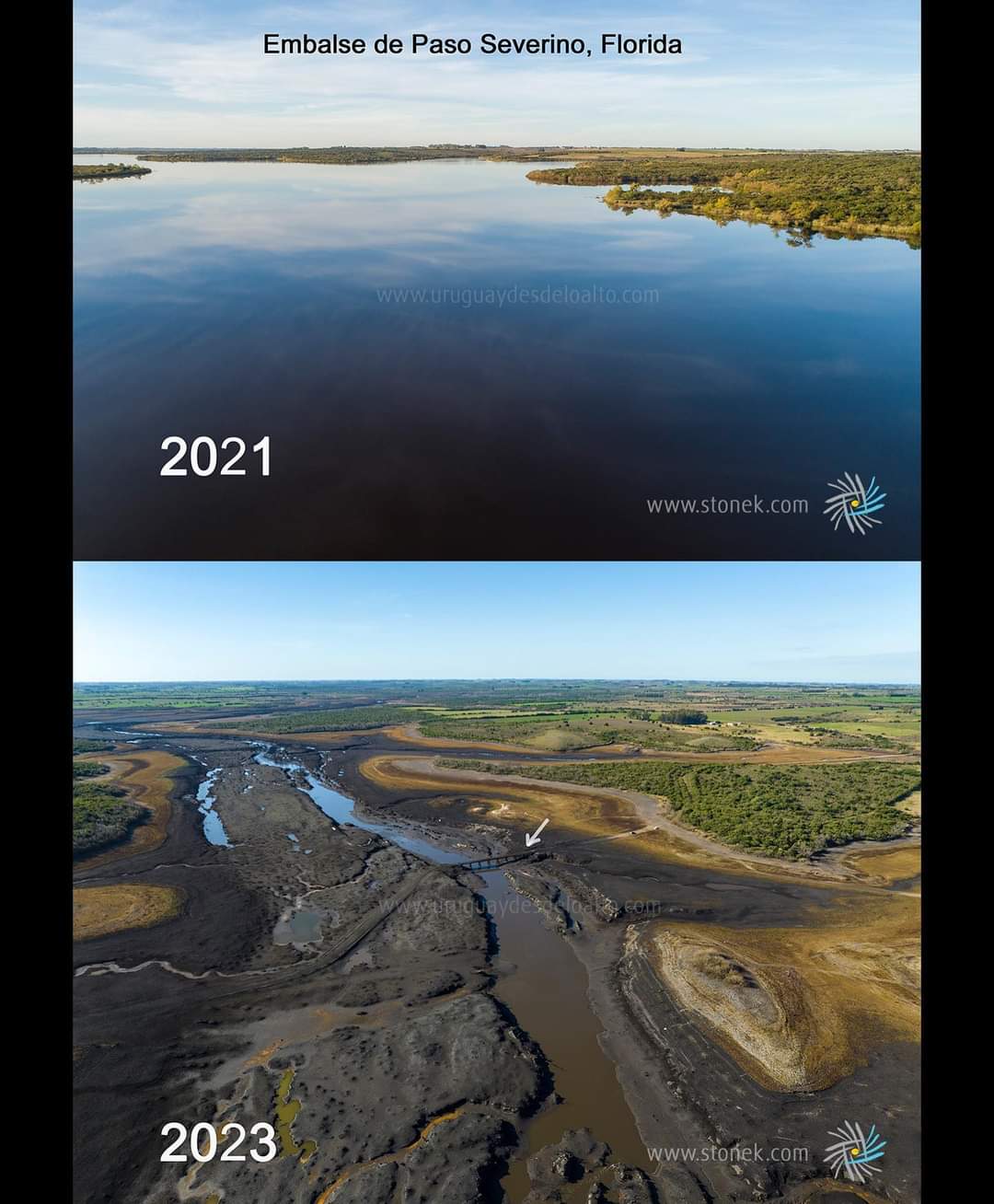MercoPress. South Atlantic News Agency
Uruguay taking action to face water crisis: drinking water reserve is empty for Montevideo
 Despite recent rains throughout the country, the water reserves of Paso Severino, the crucial reservoir that supplies drinking water to the entire metropolitan area, are below 5%.
Despite recent rains throughout the country, the water reserves of Paso Severino, the crucial reservoir that supplies drinking water to the entire metropolitan area, are below 5%. Uruguay's Congress Wednesday unanimously approved the Water Emergency Fund to finance access to bottled water among other measures amid an unprecedented shortage of drinking water due to the drought the country is going through.
“It is foreseen that, on the one hand, international credit organizations will be approached. Surely there are possibilities of access to soft credit lines, according to this water emergency situation,” Congressman Iván Posada, of the Independent Party said.
“Subject to a report from the Planning and Budget Office, non-state public entities may, as long as the fulfillment of their tasks is not affected, allocate contributions to this fund, and on the other hand, the General Revenue will always be paying for the financing,” he added.
Meanwhile, President Luis Lacalle Pou insisted his government was “hurrying all the works and trying to continue looking for alternative sources” of water. He made those remarks after returning from the Mercosur summit in Puerto Iguazú (Argentina).
The president also said he was confident that the salinity of network water will not have to be increased and pledged to keep Uruguayans posted. As soon as there is a change the people will be notified in due time, Lacalle explained. However, an official report made by Presidency states that pumping lines 4 and 5 in Montevideo exceeded the authorized limits for chloride levels, with averages of 739 mg/L and 792 mg/L, respectively. Similarly, for sodium levels, lines 4 and 5 surpassed the allowed maximum of 440 mg/L, with averages of 443 mg/L and 472 mg/L.
Montevideo's sole source of drinking water affected
Despite recent rainfall across the country, the water reserves at Paso Severino, the crucial reservoir that supplies Montevideo and the entire metropolitan area with drinking water, experienced a slight decline on Wednesday. According to the latest report from OSE, state-owned water company, Montevideo's primary water source decreased from 1,121,711 cubic meters to 1,117,482.

The dam has a capacity of about 70 million cubic meters of water, but with the drought it barely
exceeds one million cubic meters, according to the latest report from the President's Office.
It is important to note that Paso Severino is the only source of drinking water for Montevideo. The consumption of water provided by the state-owned company decreased by 1,189 cubic meters compared to Tuesday, amounting to 511,537 cubic meters.
Currently, the water supply for the metropolitan area consists of various sources. The extraction of water is determined based on the contribution of each source to ensure the desired water quality, as per the parameters established by the Ministry of Public Health (MSP).
On a daily basis, the metropolitan area consumes approximately 500,000 to 550,000 cubic meters of water. Roughly 150,000 cubic meters are sourced from the Santa Lucía River, 200,000 cubic meters from downstream of the Belastiquí reservoir (brackish water), and 150,000 cubic meters from the Paso Severino reservoir, which is Montevideo's primary and indispensable water supply.




Top Comments
Disclaimer & comment rulesCommenting for this story is now closed.
If you have a Facebook account, become a fan and comment on our Facebook Page!